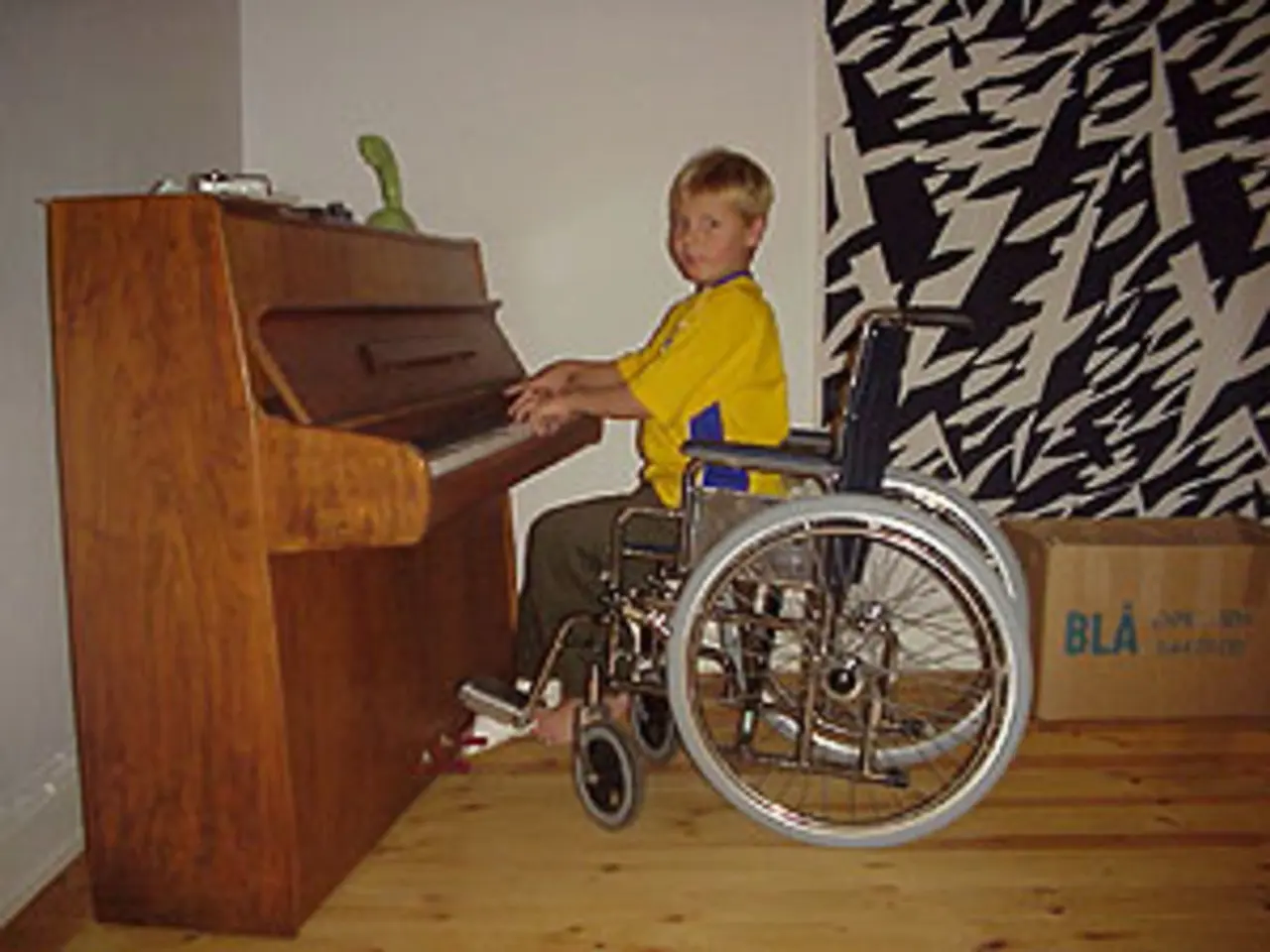Guiding a Child with Autism Spectrum Disorder to Prosper
In a significant step towards understanding and supporting children with Autism Spectrum Disorder (ASD), experts stress the importance of early intervention as the most effective way to speed up a child's development and reduce symptoms over their lifetime. This article outlines key strategies for early intervention and treatment, focusing on starting therapies as early as possible, ideally before age 3.
**1. Applied Behavior Analysis (ABA)**
Widely recognized as a leading behavioral therapy, ABA uses reinforcement-based techniques to improve social skills, communication, and reduce challenging behaviors. Methods such as Discrete Trial Training (DTT), Natural Environment Teaching (NET), and Skills-Based Training (SBT) are employed to break skills into small, teachable parts and promote learning during everyday activities.
**2. Speech Therapy**
Speech therapy plays a crucial role in enhancing expressive language, comprehension, and communication skills critical for social interaction.
**3. Occupational Therapy**
Occupational therapy helps children manage sensory sensitivities, develop fine motor skills, and improve daily living abilities like dressing and toileting.
**4. Social Playgroups and Social Skills Training**
Social playgroups and social skills training support peer interaction, emotional learning, and help children build meaningful relationships.
**5. Multidisciplinary, Individualized Approach**
Effective early intervention often combines multiple therapies tailored to the child’s specific developmental and behavioral needs. This includes physical therapy for motor skills, psychological therapy for emotional and behavioral support, and ongoing reassessment to adjust goals as the child grows.
**6. Structured and Predictable Environment with Positive Reinforcement**
A personalized treatment plan providing structure and consistent positive reinforcement supports learning and behavior change.
**7. Ongoing Family Support and Training**
Parent training helps families implement strategies at home, reinforcing therapeutic gains and fostering continual growth.
Starting these interventions promptly after diagnosis and maintaining continuous support through school years and beyond significantly improve long-term outcomes for children with autism.
---
**Summary Table of Early Intervention Strategies for ASD**
| Strategy | Focus Area | Purpose | |-------------------------------|-----------------------------------------------|----------------------------------------------| | Applied Behavior Analysis (ABA) | Behavior, social skills, communication | Skill-building through reinforcement | | Speech Therapy | Language, communication | Improve expressive/receptive language | | Occupational Therapy | Sensory processing, fine motor, daily living | Manage sensory issues, promote independence | | Social Playgroups | Peer interaction, emotional learning | Develop social/emotional skills | | Multidisciplinary Approach | Physical, cognitive, behavioral, emotional | Tailored comprehensive support | | Structured Environment | Consistency, predictability | Support learning and positive behaviors | | Family Training | Home implementation | Reinforce therapy and promote ongoing growth |
These interventions, when started early and tailored to the individual child, constitute the most effective approach for helping children with autism thrive.
Learning about autism and educating yourself about the treatment options is important. Special education services (age three and older) are tailored to the individual needs of autistic children and can include placement in small groups with other developmentally delayed kids for more individual attention and specialized instruction.
Creating a home safety zone can provide a private space for your child to relax, feel secure, and be safe. Parents have a legal right to be involved in developing their child's Individualized Education Plan (IEP), disagree with the school system's recommendations, seek an outside evaluation for their child, invite anyone they want to be on the IEP team, request an IEP meeting at any time if they feel their child's needs are not being met, and receive free or low-cost legal representation if they cannot come to an agreement with the school.
Joining an ASD support group can provide emotional support and advice to parents of autistic children. Making time for fun is essential for both autistic children and their parents, as there needs to be more to life than therapy. Providing structure and consistency in your child's environment is beneficial for reinforcing learning. Paying attention to your child's sensory sensitivities can help in troubleshooting problems and creating successful experiences. Rewarding good behavior can encourage positive reinforcement.
For parents who are autistic themselves, it may be helpful to let their child get to know the real them, adopt coping habits that help reduce stress in challenging situations, look to other people for support when certain tasks seem overwhelming, build on their strengths, be patient with themselves and their child, and seek hotlines and support in their country for guidance and resources.
Under the U.S. federal law Individuals with Disabilities Education Act (IDEA), children with ASD are eligible for a range of free or low-cost services, including medical evaluations, psychological services, speech therapy, physical therapy, parent counseling and training, assisted technology devices, and other specialized services.
- In addition to the specified therapies, it's essential for parents to receive ongoing emotional support, as they play a crucial role in implementing and reinforcing therapeutic gains at home.
- Encouraging mental-health awareness and promoting parenting skills are integral aspects of holistic health-and-wellness programs for autistic children and their families, as they help individuals cope with the unique challenges that autism presents.




